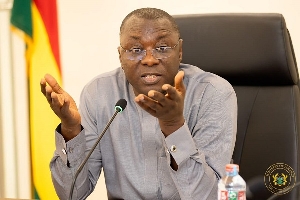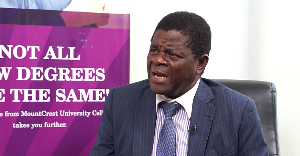Economy and policy analyst Enoch Okomfo Okonah says the nation’s over-reliance on the Bretton Woods institutions in managing the Ghana Cedi shows a lack of clear policy direction to deal with the fundamental economic challenges of the country.
In an interview with the Ghana News Agency (GNA), in Sunyani, on the state of the economy, he said bolder economic policies were required to strengthen the Ghana Cedi, instead of the country over-relying on foreign aid and borrowings.
Mr Okonah, who is also the Chief Executive Officer of DUMAT Africa, explained that the nation required a targeted tax regime that focused on growing domestic production and reducing the country’s imports.
The DUMAT Africa is a Sunyani-based economic policy think-tank that focuses on economic policy, governance and labour issues.
Mr Okonah emphasised that it was rather necessary and appropriate for the government to subsidize imports, build a more resilient local economy that favoured the private sector in tackling the country’s fiscal challenges.
That, he said, would stabilize the economy, spur rapid economic growth and thereby strengthen the Ghana cedi for wealth creation, and poverty reduction.
He emphasised that a robust local economy was required to build investor confidence, which would accordingly, attract investments into the sectors of the economy.
Mr Okonah said with the IMF deal sealed, Ghanaians anticipated sound economic policies that would proactively tackle the sharp rise in market prices of food and commodities, building materials, petroleum products, and other essential services and build a better society and make life comfortable for all.
Business News of Sunday, 28 April 2024
Source: GNA

















